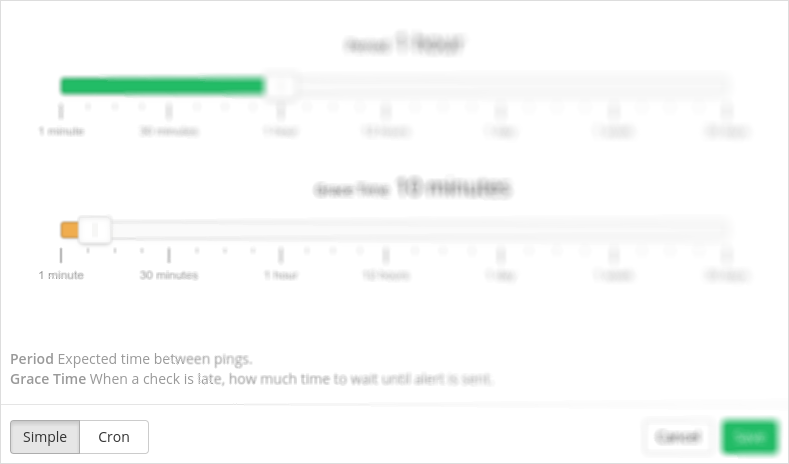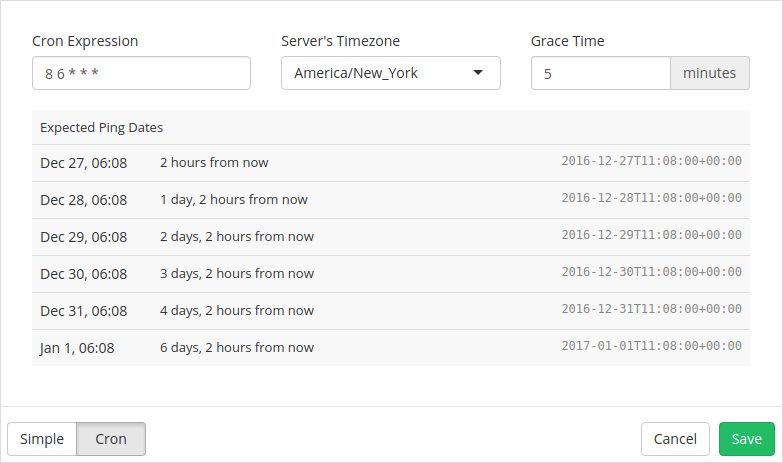Cron expression support has been the most requested feature, since the launch of healthchecks.io. Long story short, it’s been implemented and is ready to use! You can now set up a time-based schedule for your checks, using the exact same syntax you use in crontab files.
For each check, you can switch between “simple” and “cron” mode:

In the simple mode, you select two parameters: period and grace time. Period is how often you expect the check to be pinged. When a ping does not arrive on time, grace time specifies how long to wait before sending an alert.
In the cron mode, you specify a cron expression, a time zone, and grace time:

The cron expression defines a fixed, time-based schedule. It allows for greater flexibility than the simple “period” parameter. For example, you can set up a check that expects a ping at the beginning of every other hour, only on weekdays. Here’s the expression you would use for that: “0 0/2 * * 1–5”.
If your server’s time zone is not UTC, you must also specify its time zone. The time zone field supports auto-complete and lets you select time zones by their IANA names. On Ubuntu systems, you can look up the system’s time zone in /etc/timezone file.
Finally, the grace time parameter works the same as in the “simple” mode. Set it to a value that comfortably covers the expected run time of your job.
Example
Let’s say you have a server that runs a backup script each morning at 6:08 AM, New York time. The backup script usually takes 1 to 2 minutes to complete and should never exceed 5 minutes. The crontab entry might look something like this:
8 6 * * * /home/user/backup.sh && curl -fsS — retry 3 https://hchk.io/fe33025a-330d-4bf0-93c4-7e433bb474da > /dev/null
For monitoring this cron job, you would set up a check as follows:
Cron expression: 8 6 * * *
Timezone: America/New_York
Grace time: 5 minutes
Notes for self-hosted installations
If you are self-hosting healthchecks.io code, there are a few things you will want to know.
Database triggers are not used any more. There used to be a management command, ensuretriggers, for creating a database trigger. The trigger would automatically update the api_check.alert_after field whenever a check is saved. This trigger is not needed any more and would interfere with cron-style checks. Remove it with the droptriggers management command:
./manage.py droptriggers
It is also a good idea to make a fresh backup of the database before major upgrades such as this one.
Conclusion
This is the initial release of cron expression support. It works well enough to be useful, but will still require careful testing, especially around daylight saving time handling. It may also see various small user interface refinements. If you use cron-style checks and notice any problems, please file an issue!
Adding cron expression support has been one of the more complex tasks since the start of the project, but it has been worth it. Since soft-launching the feature two weeks ago, 140+ new checks have already been set up to use cron expressions. This has been gratifying to see.
With that, happy monitoring and happy 2017!
Pēteris,
healthchecks.io
